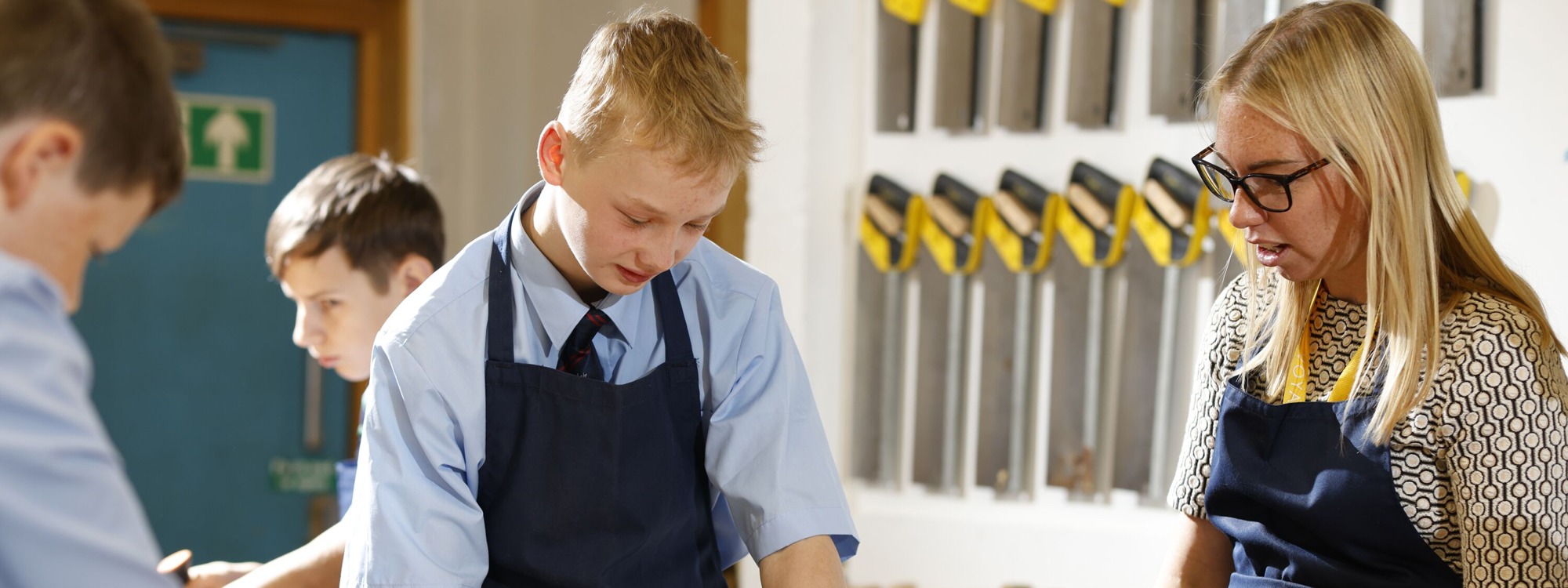- Home
- Curriculum
- Subject Information
- Applied Learning
Applied Learning
BackConstruction (Key Stage 4)
Contact: Mrs D Bailey/Mr J Buels
Term |
Year 10 |
Year 11 |
|---|---|---|
Autumn Term |
Understand the structure of the construction and built environment industry which includes a range of work, types of organisation and types of client. |
Understand the methods used to repair, maintain and refurbish buildings.
|
Christmas Term |
Understand how construction projects are planned which include the responsibilities in construction projects, interactions between individuals and planning construction projects. |
Understand the work carried out by construction and building services craft operatives. |
Winter Term |
Understanding substructure processes such as site preparation, excavations, foundations and building services. Then moving on to superstructure processes which include: external walls, floors and roofs. |
Understand how to work safely on construction projects |
Easter Term |
Understand internal construction processes which include partitions, wall and floor finishes, fixtures and fittings. |
Understand technical skills required for construction craft tasks |
Spring Term |
Understand the properties of construction materials such as timber, masonry, metals, plastics, concrete, paints, plasters, glass and ceramics. |
Recap over units 201, 202, 203 and 204 in preparation for the external assessment |
Summer Term |
Understand the characteristics of repair, maintenance and refurbishment of buildings. |
This course is assessed equally on all 3 components, 1, 2 and 3. It is graded Level 1 Pass, Level 1 Merit, Level 1 Distinction, Level 2 Pass, Level 2 Merit and Level 1 Distinction.
Food and Nutrition (Key Stage 4)
Contact: Mrs D Bailey/ Mrs S English
| Term | Year 10 | Year 11 |
|---|---|---|
Autumn Term |
Fruit and vegetables, food hygiene health and safety. |
Cooking methods and heat transfer Functional and chemical properties of ingredients in food |
Christmas Term |
Food provenance and quality assurance. |
NEA 1 Food Science investigation and revisit macro Micro & micronutrients, illnesses caused by poor diet |
Winter Term |
Eggs, poultry, meat, macro nutrients |
NEA 2 food practical, food hygiene, time plans, |
Easter Term |
fish, cereals, allergies, micronutrients, minerals |
Food provenance, Food labels, Diets for specific groups, BMR PAL, Energy balance exam questions |
Spring Term |
sugar, micronutrients, vitamins, Conducting food science research, research methods, annotation and referencing |
Commodities, nutritional case |
Summer Term |
Exam papers, exam questions methods of evaluation and summarising |
Enterprise (Key Stage 4)
Contact: Mrs D Bailey
| Term | Year 10 | Year 11 |
|---|---|---|
Autumn Term |
Understand how and why enterprises and entrepreneurs are successful |
Present a plan for the microenterprise idea to meet specific requirements |
Christmas Term |
Understand customer needs and competitor behaviour through market research |
Review the presentation of the microenterprise idea to meet specific requirements |
Winter Term |
Understand how the outcomes of situational analyses may affect enterprises. |
Marketing Activities: |
Easter Term |
Complete component one PSA. |
Financial Documents and Statements: Profitability and liquidity, financial statements, revenue and costs, payment and methods |
Spring Term |
Complete component one PSA. |
Financial Planning and Forecasting: |
Summer Term |
Choose an idea and produce a plan for a micro-enterprise idea |
Beauty (Key Stage 4)
Contact: Mrs D Bailey
| Term | Year 10 | Year 11 |
|---|---|---|
Autumn Term |
UCO90 - Types of hair & beauty businesses, business structures, opportunities in the hair and beauty sector, ways of training, links to other industries and contribution to GDP |
Completion of UCO91 |
Christmas Term |
Health, safety & hygiene, infectious conditions, professional organisations, sustainability, environmental effects of hair & beauty businesses, historical development and technological advances. |
Revision for exam |
Winter Term |
Entrepreneurship; business planning and marketing. |
February (Exam) |
Easter Term |
UCO91 - Cosmetic ingredients |
NEA controlled assignment |
Spring Term |
Structure and functions of the skin, hair and nail. |
Practical Work: |
Summer Term |
Historical evolvement from Ancient Egyptians to modern times; development of products from concept to launch and impact of manufacturing on the environment. |
Beauty (Key Stage Five)
Contact: Mrs D Bailey (Principal Teacher Applied Learning)
| Term | Year 12 | Year 13 |
|---|---|---|
Autumn Term |
Level 2: Manicure; health & safety |
Level 3 - Body Massage |
Christmas Term |
Level 2: Pedicure; spray tanning. |
Level 3 - Body Massage |
Winter Term |
Level 2: Facials |
Hot Stone Therapy Indian head; |
Easter Term |
Level 2: Waxing |
Explore the origins of massage; |
Spring Term |
Level 2: Eye treatments |
Aromatherapy; A & P; practical |
Summer Term |
Level 2: Practical assessments |
Food Science and Nutrition (Key Stage Five)
Contact: Mrs D Bailey (Principal Teacher)
| Term | Year 12 | Year 13 |
|---|---|---|
Autumn Term |
Food hygiene, the role of the EHO and legislation, HACCP, types of bacteria that cause food poisoning, food allergies practical skills |
|
Christmas Term |
The structure of nutrients, Nutrient density, biological value and glycaemic index Nutrient values in food / food labelling Impact of the preparation and cooking methods on nutrients |
|
Winter Term |
The characteristics of unsatisfactory nutritional intake, the nutritional needs of specific groups, how different situations affect nutritional needs Calculating nutritional requirements of individuals |
|
Easter Term |
Time plans and evaluation methods NEA 15 hour assessment |
|
Spring Term |
Case studies and exam questions theory |
|
Summer Term |
Exam Functional properties of ingredients in baking fats carbohydrates and proteins |

